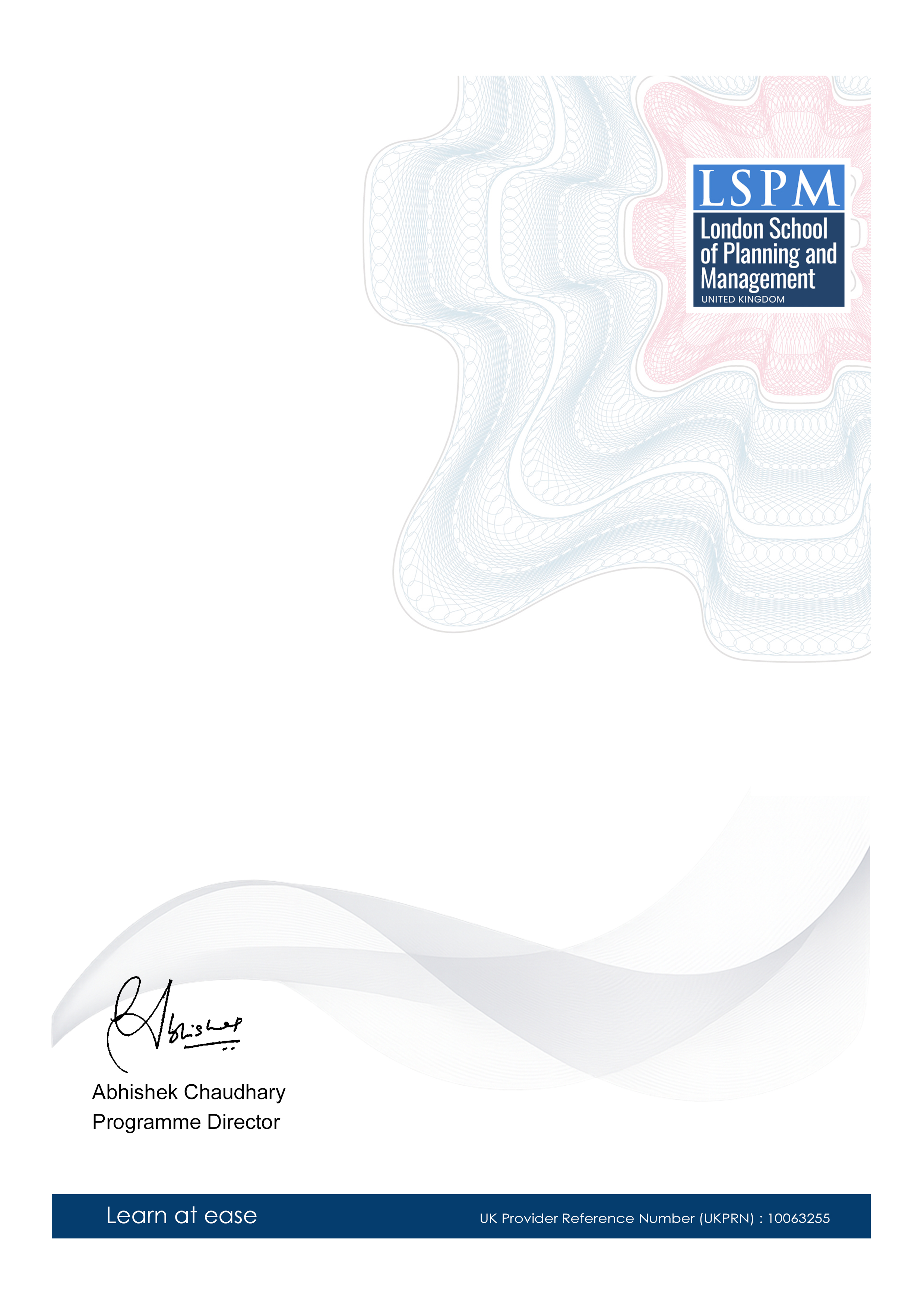Global Certificate Course in Humanitarian Aid Research
-- viewing nowThe Global Certificate Course in Humanitarian Aid Research is an online program designed for individuals seeking to deepen their understanding of humanitarian aid. The course provides a comprehensive overview of the principles, practices, and challenges associated with delivering effective aid in crisis situations.
6,858+
Students enrolled
GBP £ 149
GBP £ 215
Save 44% with our special offer
About this course
100% online
Learn from anywhere
Shareable certificate
Add to your LinkedIn profile
2 months to complete
at 2-3 hours a week
Start anytime
No waiting period
Course details
Career path
Global Certificate Course in Humanitarian Aid Research
The Global Certificate Course in Humanitarian Aid Research is a comprehensive program that equips students with the necessary skills and knowledge to work in the humanitarian aid sector. The course covers a wide range of topics, including disaster management, emergency response, and humanitarian law. Upon completion of the course, graduates can pursue various career roles in the UK and around the world.
Career Roles
Here are some of the career roles that graduates of the Global Certificate Course in Humanitarian Aid Research can pursue:
- Humanitarian Aid Worker: Responsible for providing assistance to people affected by disasters or conflicts. They work with local communities to identify needs and provide support in the form of food, shelter, medical care, and other essential services.
- Emergency Response Coordinator: Oversees the planning, implementation, and evaluation of emergency response plans. They work with various stakeholders, including government agencies, NGOs, and the military, to ensure effective response to disasters and conflicts.
- Disaster Risk Reduction Specialist: Focuses on reducing the impact of disasters by identifying risks and vulnerabilities and implementing measures to mitigate them. They work with communities to build resilience and reduce the likelihood of disasters occurring.
- Humanitarian Logistics Manager: Responsible for managing the supply chain and logistics operations in humanitarian aid settings. They ensure the timely delivery of relief supplies to affected areas and manage the distribution process to ensure fairness and efficiency.
- Humanitarian Information Officer: Collects, analyzes, and disseminates information about humanitarian crises to various stakeholders, including the media, donors, and the public. They ensure that accurate and timely information is available to support decision-making and response efforts.
Job Market Trends
The job market for humanitarian aid workers is expected to grow in the coming years due to increasing natural disasters and conflicts around the world. According to a report by the International Labour Organization, the demand for humanitarian aid workers is projected to increase by 20% by 2030. This trend is driven by factors such as climate change, population growth, and political instability.
Salary Ranges
Salaries for humanitarian aid workers vary depending on factors such as experience, location, and the type of organization they work for. According to PayScale, the average salary for a humanitarian aid worker in the UK is around £30,000 per year. However, this can range from £20,000 to £50,000 or more depending on the specific role and organization.
Skill Demand
Skills in demand for humanitarian aid workers include project management, emergency response, disaster risk reduction, logistics management, and communication skills. Proficiency in languages such as Arabic, French, and Spanish is also highly valued in many humanitarian aid settings.
Entry requirements
- Basic understanding of the subject matter
- Proficiency in English language
- Computer and internet access
- Basic computer skills
- Dedication to complete the course
No prior formal qualifications required. Course designed for accessibility.
Course status
This course provides practical knowledge and skills for professional development. It is:
- Not accredited by a recognized body
- Not regulated by an authorized institution
- Complementary to formal qualifications
You'll receive a certificate of completion upon successfully finishing the course.
Why people choose us for their career
Loading reviews...
Frequently Asked Questions
Course fee
- 3-4 hours per week
- Early certificate delivery
- Open enrollment - start anytime
- 2-3 hours per week
- Regular certificate delivery
- Open enrollment - start anytime
- Full course access
- Digital certificate
- Course materials
Get course information
Earn a career certificate

